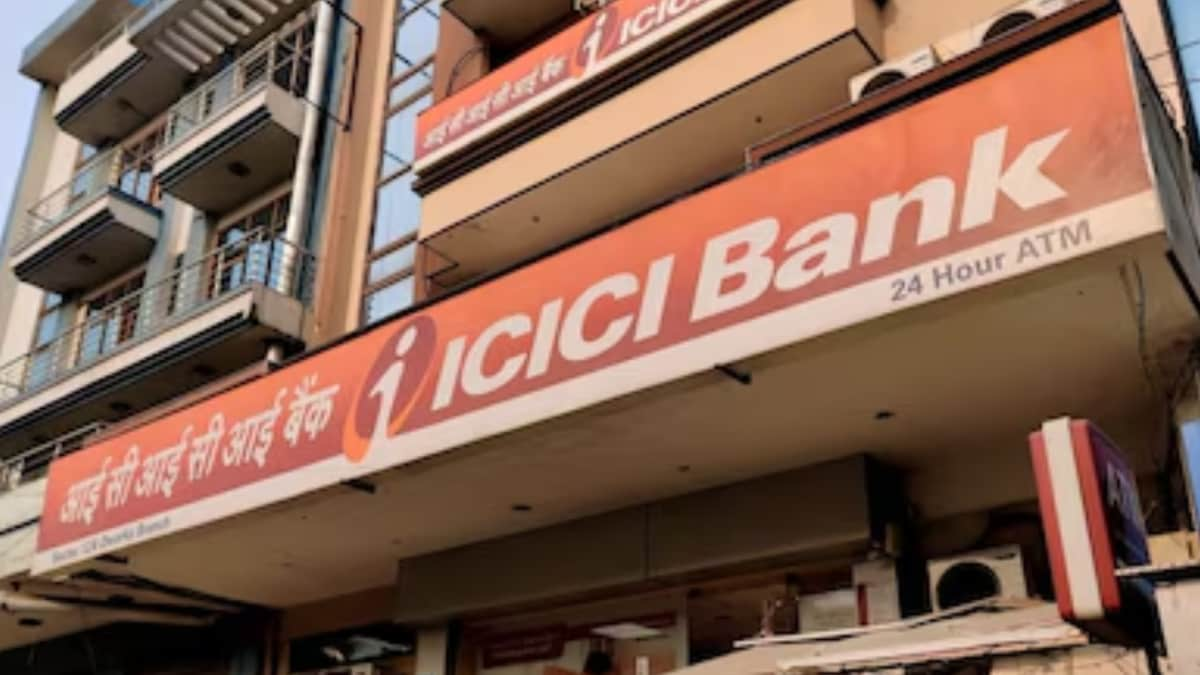Politics
Modi, Starmer hail ‘new energy’ in India-UK ties
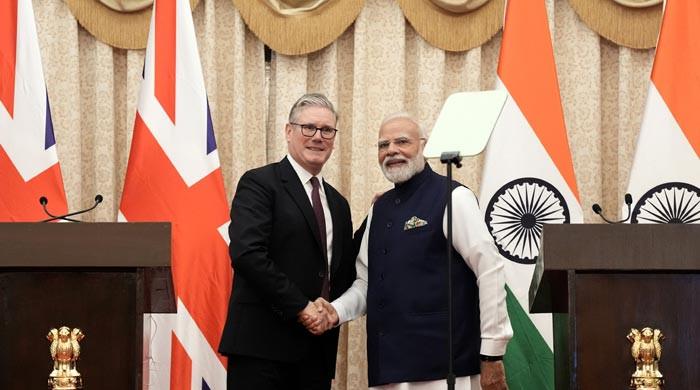
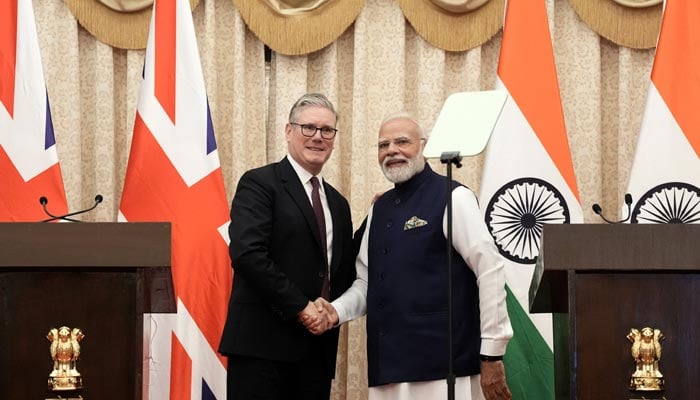
- India’s Modi, UK’s Starmer hail trade deal as transformative.
- Starmer expects major new investments to add thousands of jobs
- India tipped to overtake Japan as fourth-largest economy this year.
Indian Prime Minister Narendra Modi told his British counterpart Keir Starmer on Thursday that relations had made “significant progress”, as they pledged to unlock “unparalleled” economic opportunities.
Starmer is on his first visit to India as the premier, accompanied by a 125-member delegation, after the two countries signed a trade deal in London in July.
Under the accord, India will slash tariffs on imports of British goods such as cosmetics and medical devices, while Britain will reduce duties on clothing, footwear and food products, including frozen prawns from India.
“This agreement will reduce import costs between our two countries, create new employment opportunities for youth, boost trade, and benefit both our industry and consumers,” said Modi.
He told his “friend” Starmer that his visit “symbolises the new energy” in ties between the nations.
“Together we will build a bright future for the people of both countries”, he told Starmer, speaking in Hindi.
India and its former colonial ruler share bilateral trade worth around $54.8 billion and investments supporting more than 600,000 jobs across both countries.
India became the world’s fifth-largest economy in 2022, when its GDP overtook Britain’s, according to IMF figures. It is tipped to overtake Japan as the fourth largest later this year.
“India’s growth story is remarkable,” said Starmer, noting New Delhi’s ambition to become the world’s third-largest economy by 2028.
“Everything I’ve seen since I’ve been here is absolute proof to me that you’re on track to succeed in that,” he said. “So, we want to be partners on that journey.”
Starmer, who returns to London later on Thursday, said he expected by his departure to have “secured major new investments, creating thousands of high-skilled jobs” for both nations.
“My visit this week is about doubling down on the potential of our trade deal for the benefit of all of us”, Starmer said.
The leaders also announced a defence cooperation deal, as well as pushing education ties, including support for the nine British universities opening campuses in India.
Politics
Nobel Prize inseparable from winner but medal can be given away, says award body
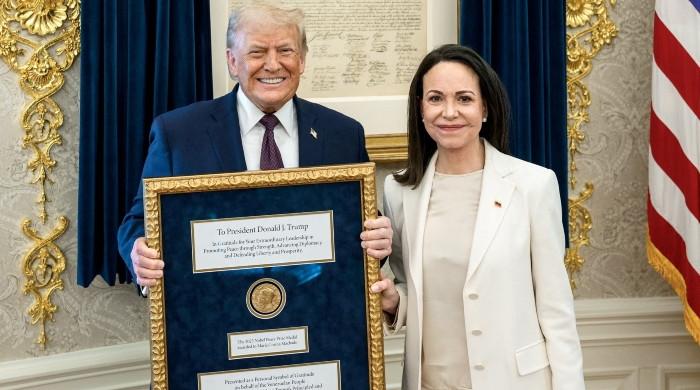
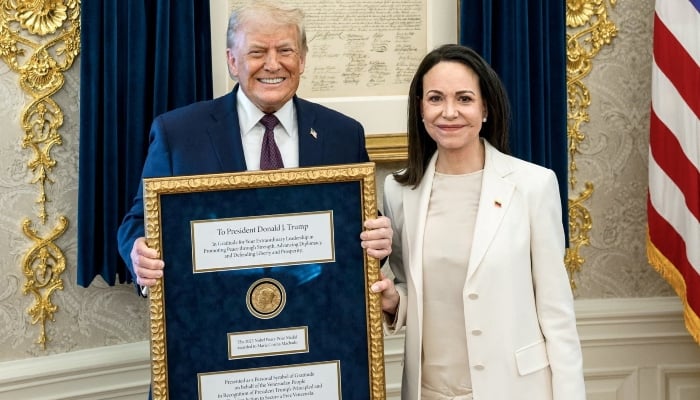
- Venezuela’s Machado gave her Nobel medal to Trump.
- Donald Trump says he intends to keep the medal.
- Original laureate recorded in history as prize recipient.
OSLO: The Nobel Peace Prize remains inseparably linked to the person or organisation that won it, though the medal can be given away, the Norwegian Nobel Committee said on Friday, a day after last year’s winner gave her medalto US President Donald Trump.
Venezuelan opposition leader Maria Corina Machado gave her medalon on Thursday to Trump, who thanked her for it. The White House released a photo of Trump and Machado, with Trump holding up a gold-coloured frame displaying it, and a White House official said Trump intends to keep it.
Machado’s award also consists of a diploma and 11 million Swedish crowns ($1.19 million).
“Regardless of what may happen to the medal, the diploma, or the prize money, it is and remains the original laureate who is recorded in history as the recipient of the prize,” the award body said in a statement.
“There are no restrictions in the statutes of the Nobel Foundation on what a laureate may do with the medal, the diploma, or the prize money. This means that a laureate is free to keep, give away, sell, or donate these items,” it added.
‘Inseparably linked’
The medal and the diploma are physical symbols confirming that an individual or organisation has been awarded the prize, said the five-strong award committee.
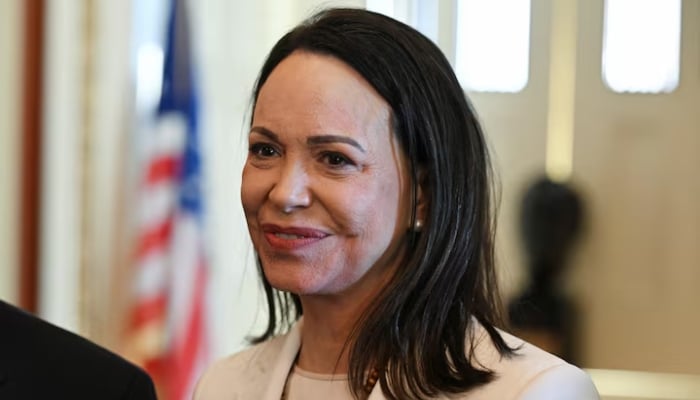
“The prize itself – the honour and recognition – remains inseparably linked to the person or organisation designated as the laureate by the Norwegian Nobel Committee,” it said.
The committee, which did not refer to Trump and Machado by name in its statement, said it does not comment on a laureate’s statements, decisions or actions after the prize is announced.
It was not the first time a Nobel laureate has given away the medal. In 1943, Nobel literature laureate Knut Hamsun gave his to Nazi propaganda minister Joseph Goebbels.
In 2022, Nobel Peace laureate Dmitry Muratov sold his medal for $100 million to raise money for the UN children’s fund Unicef to help Ukrainian refugee children.
In 2024, the widow of former UN Secretary-General Kofi Annan donated his 2001 Nobel Peace Prize medal and diploma to the UN office in Geneva.
Politics
Trump purchases $100 million worth of Netflix, Warner Bros bonds
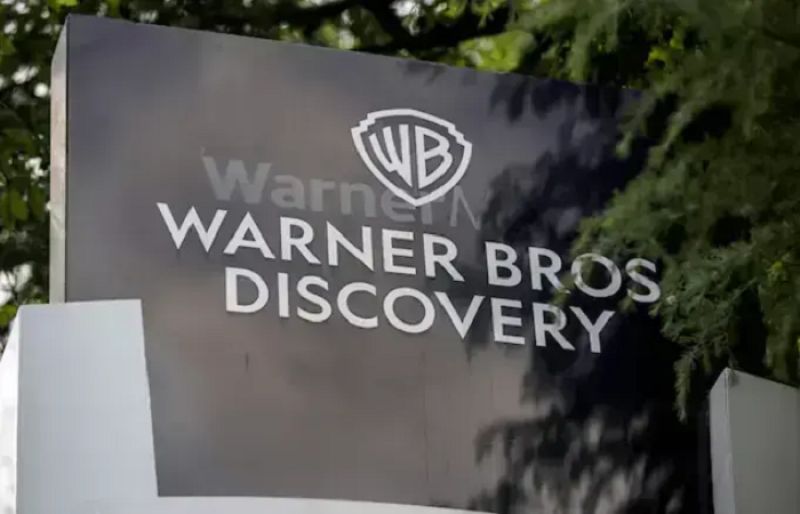

US President Donald Trump purchased about $100 million in municipal and corporate bonds from mid-November to late December, his latest disclosures showed, including up to $2 million in Netflix and Warner Bros Discovery bonds just weeks after the companies announced their merger.
Financial disclosures posted on Thursday and Friday showed the majority of Trump’s purchases were municipal bonds from cities, local school districts, utilities and hospitals.
But he also bought bonds from companies including Boeing, Occidental Petroleum and General Motors.
The investments were the latest reported assets added to Trump’s expanding portfolio while he is in office.
It includes holdings in sectors that benefit from his policies, raising questions about conflicts of interest.
For example, Trump said in December that he would have a say in whether Netflix can proceed with its proposed $83 billion acquisition of Warner Bros Discovery, which faces a rival bid from Paramount Skydance.
Any deal to acquire Warner Bros will need regulatory approval.
A White House official, who spoke on the condition of anonymity, said on Friday that Trump’s stock and bond portfolio is independently managed by third-party financial institutions and neither Trump nor any member of his family has any ability to direct, influence or provide input regarding how the portfolio is invested.
Like many wealthy individuals, Trump regularly buys bonds as part of his investment portfolio.
He previously disclosed at least $82 million in bond purchases from late August to early October.
Politics
Trump says Pakistani PM’s ‘saving 10 million lives’ remark is an honour
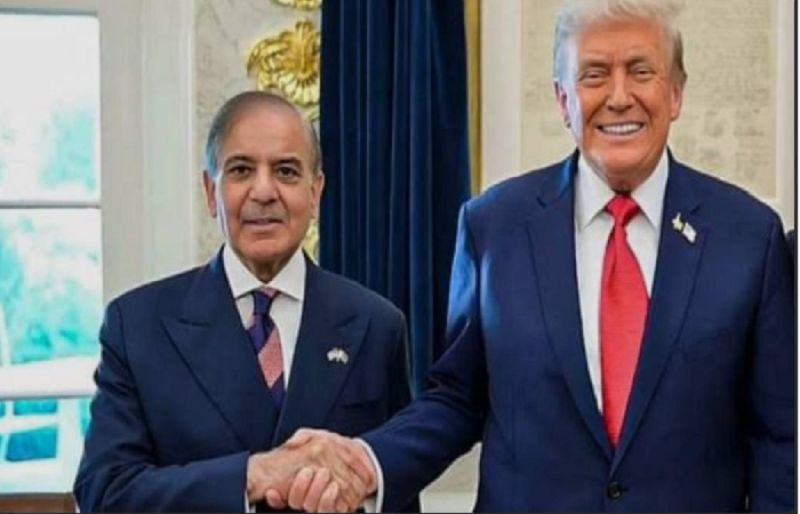
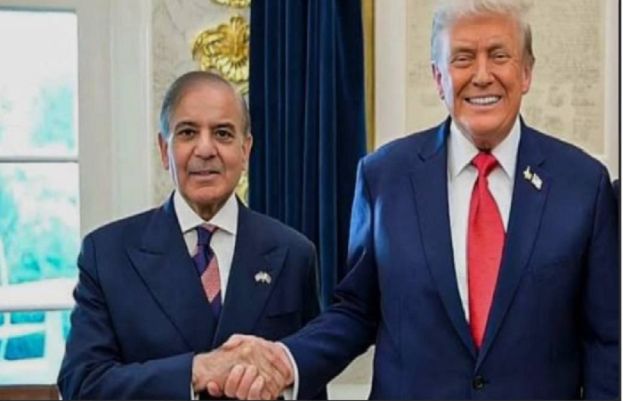
US President Donald Trump has reiterated his claim of having stopped a war between Pakistan and India, while also saying that Pakistan Prime Minister Shehbaz Sharif thanked him for saving at least 10 million lives.
He made the remarks at the renaming of Southern Boulevard to Donald J Trump Boulevard in Washington on Friday.
“In a year, we made eight peace deals and ended the conflict in Gaza. We have peace in the Middle East…We stopped India and Pakistan from fighting, two nuclear nations…The Pakistani Prime Minister said Donald Trump saved at least 10 million people, and it was amazing,” he said.
The US president further recalled that the Pakistani prime minister’s remarks were an honour for him.
Trump cited his administration’s foreign policy record and repeated assertions of brokering peace between the two nuclear-armed neighbours.
Trump has made similar claims multiple times since May 10 last year, arguing that US pressure helped defuse tensions between India and Pakistan.
-

 Tech5 days ago
Tech5 days agoNew Proposed Legislation Would Let Self-Driving Cars Operate in New York State
-

 Sports6 days ago
Sports6 days agoClock is ticking for Frank at Spurs, with dwindling evidence he deserves extra time
-
Sports1 week ago
Commanders go young, promote David Blough to be offensive coordinator
-

 Entertainment4 days ago
Entertainment4 days agoX (formerly Twitter) recovers after brief global outage affects thousands
-

 Fashion6 days ago
Fashion6 days agoSouth India cotton yarn gains but market unease over US tariff fears
-

 Fashion6 days ago
Fashion6 days agoChina’s central bank conducts $157-bn outright reverse repo operation
-

 Business1 week ago
Business1 week agoSoftBank reduces Ola Electric stake to 13.5% from 15.6% – The Times of India
-

 Sports6 days ago
Sports6 days agoUS figure skating power couple makes history with record breaking seventh national championship




